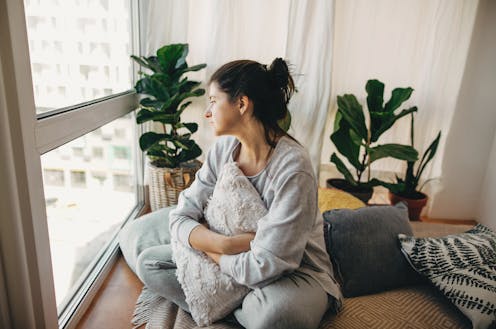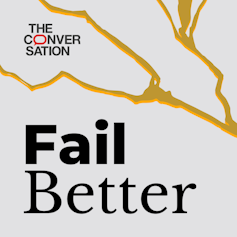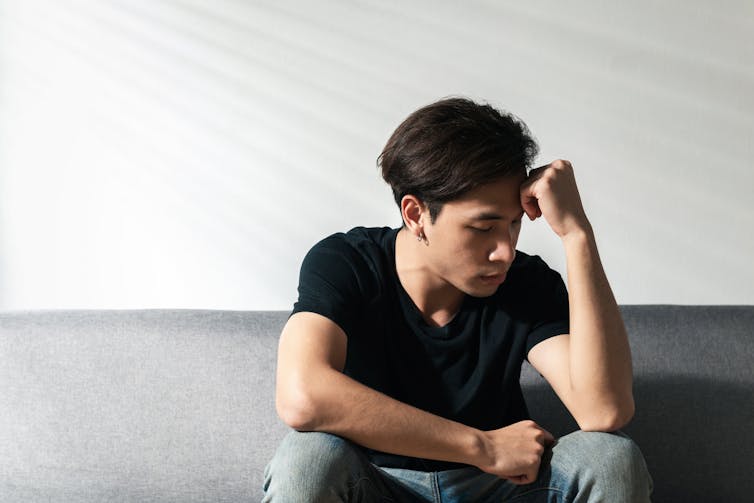
Imagine you’re young, healthy and active. Then, one day, the rug is pulled out from under you. You initially have symptoms akin to a cold, so you take a lateral flow test, which shows you have COVID. But it’s nothing that stops you from getting on with things, at least from a distance.
You can listen to more articles from The Conversation, narrated by Noa, here.
A few weeks later, or perhaps months, you start to have strange symptoms. You feel unwell after exercising, and you’re exhausted after a trip to the shops or meeting a friend. Your chest becomes heavy when you load the dishwasher.
You go to the doctor and they run some tests. None come back with anything out of the ordinary. Your doctor tells you: “You might have long COVID, but we still don’t know much about it.”

This article is part of Fail Better, a series for those of us in our 20s and 30s about navigating the moments when things aren’t quite going as planned. Many of us are tuned into the highlight reel of social media, where our peers share their successes in relationships, careers and family. When you feel like you’re not measuring up, the pieces in this special Quarter Life series will help you learn how to cope with, and even grow from, failure.
Suddenly words like “rest” and “slowing down” become commonplace in your life. These words are not compatible with the life you want to lead, but your body gives you little choice. You feel shocked by this turn of events and you may even feel like a failure.
You’re not, of course. But living with a chronic medical condition like long COVID, when only months ago you were fit and healthy, can mean you feel that way.
Young people and long COVID
Many might assume otherwise, but young, healthy people can develop long COVID. Data shows that 2.7% of people aged 17-24 and 3.6% of those aged 25-34 have symptoms at least four weeks after an infection. Even athletes are not immune.
Long COVID is still poorly understood, yet it can be life altering. Although symptoms and their severity vary from person to person, debilitating fatigue is common. Many sufferers are no longer able to do exercise, and even struggle with ordinary daily tasks.
People facing cognitive symptoms like problems with memory and concentration (“brain fog”) might see the quality and quantity of their output at work decline. This may be particularly worrying for young adults only just starting out in their careers.
À lire aussi : Five tips for young people dealing with long COVID – from a GP
Long COVID can be episodic and unpredictable. Energy can fluctuate from week to week, day to day, and hour to hour. Physical, mental or emotional exertion can also exacerbate symptoms. Over time, you may feel you are gradually improving. But just as you think you’re reaching the end, your symptoms can hit you hard again.
For people with long COVID, while improvement is possible, there’s a degree of uncertainty about the course their illness might take. This can cast doubt over all sorts of plans a young person might have, from work, to study, to travel, to starting a family.
People with other chronic and poorly understood medical conditions, such as Lyme disease and ME/CFS (myalgic encephalomyelitis/chronic fatigue syndrome), frequently struggle with feelings of identity loss. Research on people with long COVID is still emerging, but it’s not difficult to see how it could lead to an identity crisis. The way a person saw themselves before getting sick – as a healthy and able-bodied professional, friend, partner, for example – is challenged when they’re no longer able to carry out these roles like they once could.
Seeking support for an ‘invisible’ illness
Unfortunately, for people with “invisible” medical conditions like long COVID, seeking understanding from others can be fraught. Some may have their experiences discredited or dismissed as psychological by friends, family or even health professionals, which is sometimes called medical gaslighting.
This can be doubly so for people from certain groups, such as women and ethnic minorities, who are sadly at increased risk of having their experiences trivialised or discredited in a healthcare context.

In the face of all these challenges, it’s important to have social support. Research shows that belonging to social groups and maintaining connections benefits our health and wellbeing.
Unfortunately, people with chronic conditions can face shrinking social circles. Others may not understand the reality of living with chronic ill health, and so are not flexible about regularly cancelled plans, for example. Feeling guilty for missing social events is yet another aspect of chronic illness that can take an emotional toll.
However, people with long COVID can develop new communities of others who understand what they’re going through. These connections can help them rebuild their identity and adjust to their new normal. They can also help them face challenges in how their new health status is accepted at work by sharing experiences and resources.
For people living with long COVID, it’s worthwhile seeking out supportive social networks. Online groups may be particularly beneficial when symptoms make it hard to travel.
À lire aussi : Four ways to support a friend or loved one with long COVID
Even though there’s much ground still to cover in long COVID research, the evidence is rapidly evolving and, with it, hopefully we’ll see more enlightened attitudes and better treatments.
Our advice is to listen to your body and trust that you know its needs better than anyone else. Be your own best support, but at the same time, stay connected and seek out understanding people. If health professionals are unhelpful, remember you can seek second opinions and, in the meantime, pace yourself, rest and respect your body’s limits.
Regressing after a period of good health may be particularly difficult. Know that it’s normal to feel frustrated with the illness and with yourself, wondering if you’re doing anything to trigger these symptoms. But try to be as compassionate with yourself as you can. It’s not your fault, and long COVID does not make you a failure. Remember you’re doing the best you can under the circumstances.
Quarter Life is a series about issues affecting those of us in our 20s and 30s.
Damien Ridge receives funding from the NIHR for 'Hearing from the unheard: impact of long-COVID in minority ethnic groups in the UK (Hi-COVE)', NIHR, 2022-2023, as well as Roche for ‘Investigating how carers cope, access and use support services – Lessons from Covid-19’, 2021-2023. He has previously received funding from the NIHR for a project entitled, ‘Understanding the support needs of people with chronic fatigue syndrome/ myalgic encephalomyelitis (CFS/ME)’, in 2017.
Nisreen Alwan receives research funding from the NIHR for 'STIMULATE ICP: Symptoms, Trajectory, Inequalities and Management: Understanding Long-COVID to Address and Transform Existing Integrated Care Pathways' and 'Hearing from the unheard: impact of long-COVID in minority ethnic groups in the UK (Hi-COVE)' studies.
Ana Leite ne travaille pas, ne conseille pas, ne possède pas de parts, ne reçoit pas de fonds d'une organisation qui pourrait tirer profit de cet article, et n'a déclaré aucune autre affiliation que son organisme de recherche.
This article was originally published on The Conversation. Read the original article.







